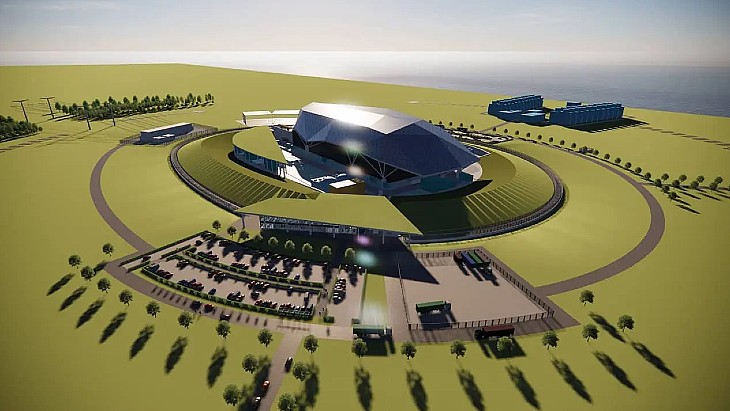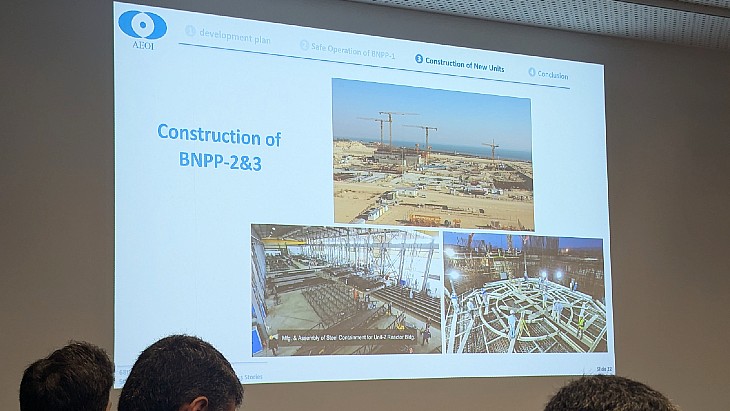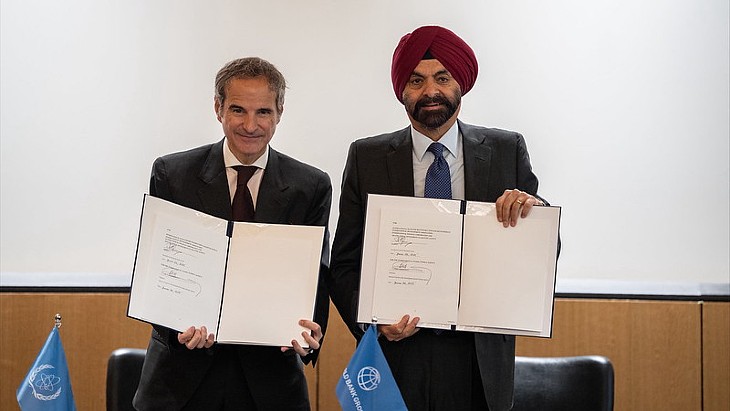IAEA offers support to Ghana
The International Atomic Energy Agency (IAEA) is ready to support Ghana if the country decides to embark on a nuclear power program, IAEA director general Yukia Amano has told the country's president.
 |
| Yukiya Amano and Ghana's Minister of Environment, Science, Technology and Innovation Mahama Ayariga commission a pelletron accelerator at GAEC during Amano's visit (Image: Brady/IAEA) |
Amano made the comments to President John Dramami Mahama during a visit to Accra last week. He also congratulated Ghana on putting in place a nuclear regulatory framework and legal infrastructure, saying: "An independent regulatory authority is essential for the safe and secure use of nuclear technology."
The Ghana Atomic Energy Commission (GAEC) was set up in 1963 to introduce nuclear science and technology into the country and to exploit the peaceful applications of nuclear energy for national development. It has a small research reactor, operated since 1994 by the GAEC's National Nuclear Research Institute. In 2007, Ghana's government announced plans to introduce nuclear energy.
The country's parliament passed its Nuclear Regulatory Act to establish an independent nuclear regulatory body, the Ghana Nuclear Regulatory Authority, in August 2015, and its seven members were appointed in January. Establishment of an independent national nuclear regulator is an essential prerequisite for the establishment of a nuclear power program.
An IAEA mission is scheduled for early 2017 to assess Ghana’s nuclear infrastructure, ahead of a government decision planned for 2018 on the introduction of nuclear power.
Ghana is one of seven West African nations making up the West African Integrated Nuclear Power Group, alongside Benin, Burkina Faso, Mali, Niger, Nigeria and Senegal. Last year the seven nations signed a memorandum of understanding on a three-year action plan to cooperate on the development of an integrated nuclear power program in the region.
Researched and written
by World Nuclear News
_92619.jpg)


_84504.jpg)





..._58412.jpg)

